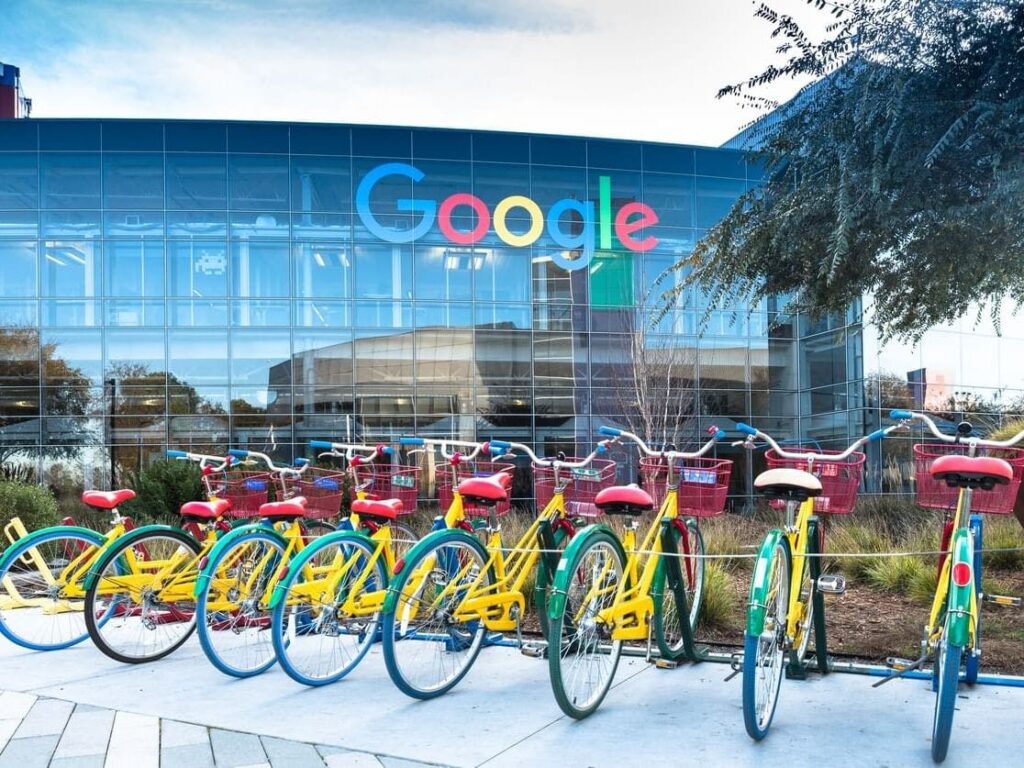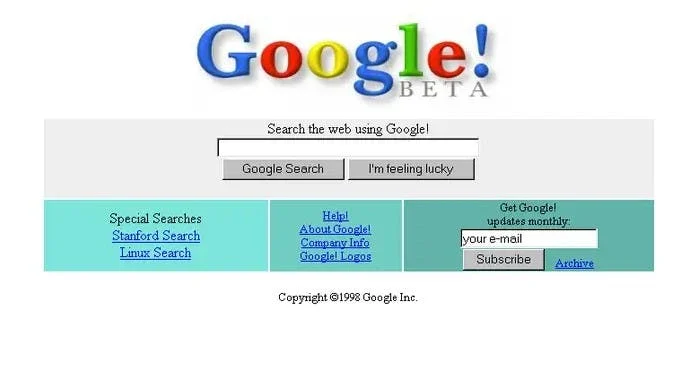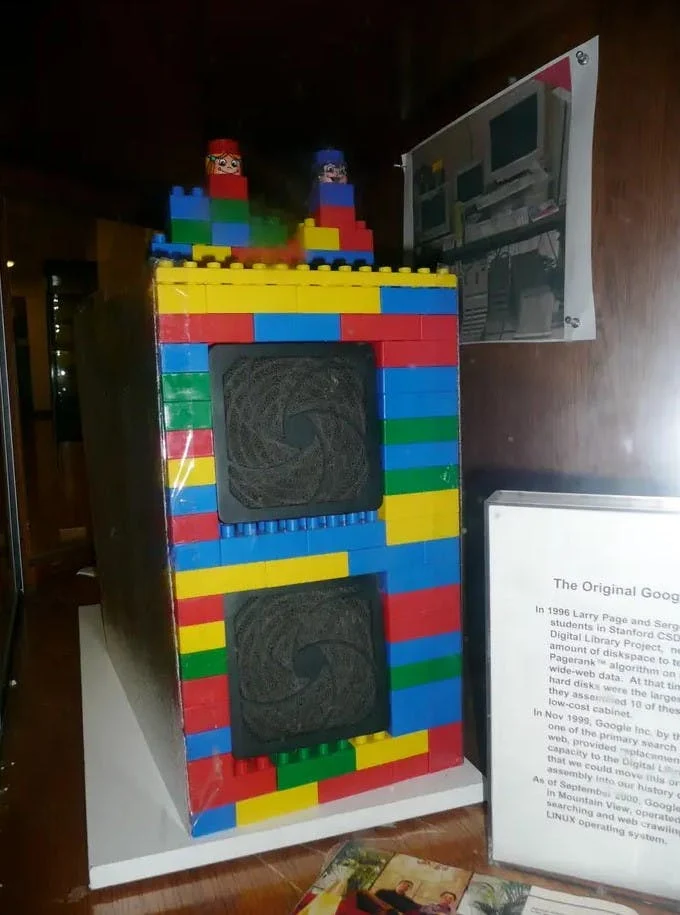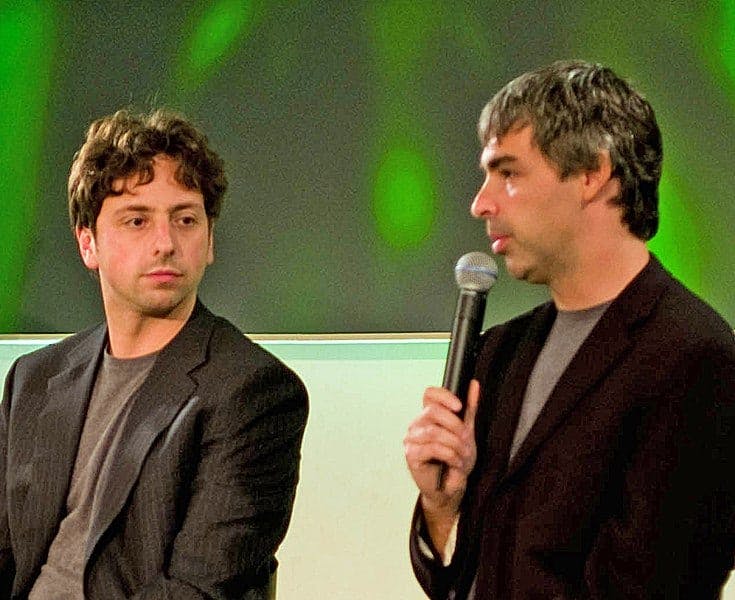Once Upon a Time at Stanford
In the sunny corridors of Stanford University, two brilliant young men bumped into each other in 1995. Larry Page, a University of Michigan graduate visiting Stanford, met Sergey Brin, who was assigned to show him around. The two couldn’t have been more different: Brin, outgoing and opinionated, clashed with Page’s assertive ideas. Who’d have thought that from this chance, slightly antagonistic encounter, the seeds of one of the world’s most transformative companies would be sown? Welcome to the origin of Google!
A Simple Idea Grows
Post their serendipitous encounter, Page and Brin found themselves intrigued by the vast web of interconnectedness on the internet. Page, ever the curious mind, pondered over the web’s underlying structure. His idea? To create a system that mapped the importance of pages based on the number of links pointing to them. Think of it like high school, where the popular kids (websites) get more attention (links)!

With Brin’s math-savvy brain, the duo worked on Page’s ambitious project, whimsically named “BackRub.” The aim? Simple: Rank pages based on their popularity and relevance.
The Twist in the Tale
Now, while our dynamic duo was on this path, they realized something epic. More popular sites were dancing their way to the top of their list, while the less popular ones lingered at the bottom. As they played around with their data, a metaphorical light bulb flashed! They saw that their results were miles ahead of existing giants like AltaVista and Excite. The eureka moment? Instead of just looking at the text on the page, they could use their “popularity signal” to produce better search results.

That signal, is what the world came to know as PageRank. By simply applying BackRub’s ranked page results to search, they stumbled upon the foundations of a search engine. And not just any search engine, but the Google we know and love today! This was the spark for the origin of Google.
From BackRub to Google
The beauty of BackRub (which honestly sounds like a spa treatment), was its uncanny ability to work like a modern search engine. Give it a web address, and voila! It returned a list of sites linking back to it, ranked by significance. They even tested BackRub against other search engines, and guess what? Their brainchild was producing far superior results.

The genius of their creation was its scalability. As the Web grew, so did the power of their search engine. To celebrate this vastness, they renamed BackRub to ‘Google’, a cheeky nod to ‘googol’ – the term for the numeral 1 followed by 100 zeroes. By August 1996, just a year after their first meeting, the world got its first taste of Google, released on the Stanford website.
Resourceful Rebels and Dorm Room Delights
Like all great stories, there were challenges to overcome. You see, search engines are hungry beasts that devour computing resources. Without deep pockets to buy fancy equipment, our tenacious duo showcased some good old-fashioned resourcefulness. From borrowing hard drives to scrounging idle CPUs, they stitched together a computational monster. Imagine: two college dorm rooms—one brimming with machines and the other buzzing with programming magic.

Their project quickly gained legendary status. At one point, Google consumed half of Stanford’s entire network bandwidth! To put that in perspective, Stanford was among the most well-networked institutions globally. And guess what? Their project was so resource-heavy that it occasionally crashed Stanford’s internet connection. Talk about making an impact!
From Campus Buzz to Global Phenomenon

Word about Page and Brin’s work spread like wildfire, not just at Stanford but in academic circles. Key figures like Jon Kleinberg, a Cornell professor, took keen interest. His method of ranking the Web was the second most famous after our duo’s PageRank. Encouraged by Kleinberg and others, Page and Brin decided to dive deep, though not without their reservations. After all, both had strong academic leanings.
Yet, the allure of their creation was undeniable. Brin recalls his adviser’s sage words, “If this Google thing pans out, great. If not, you can always finish your thesis.” And with a chuckle, Brin thought, “Why not give it a try?”
In the vast tapestry of history, certain stories stand out for their transformative impact. Google’s origin tale, rooted in a chance meeting at Stanford, is undoubtedly one of them. From two individuals with different personalities, to a project that consumed Stanford’s bandwidth, to the global behemoth that is Google—this story reminds us that sometimes, destiny has a way of bringing the right minds together at the perfect time.

 Additional Facts
Additional Facts
15%
15% of Google searches made every day are actually new and unique.
40%
Google went down for 5 minutes in 2013 and this caused 40% drop in global internet usage.
$1 Million
Larry and Sergey offered Yahoo to purchase Google for $1 Million in 1997. Google’s current market cap is $1.71 Trillion.




